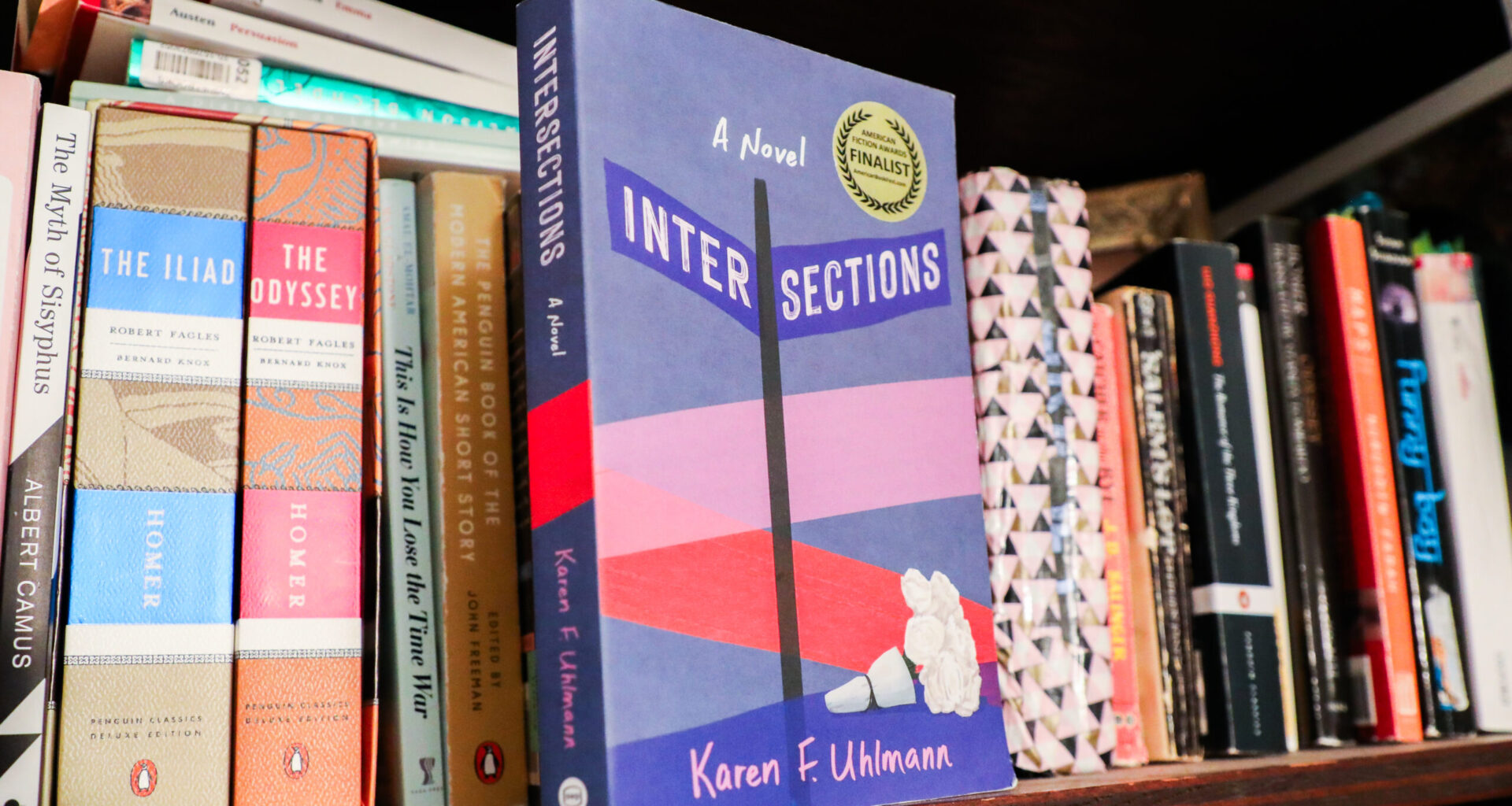Does one horrific action — whether small or accidental, physically or emotionally damaging – make a horrible person?
Behind every tragedy, one can find horrific grief, a freeing sense of relief — even a healing joy.
Karen F. Uhlmann’s “Intersections,” released May 6, implores readers to contemplate the concept that humans — regardless of the mistakes they make — have the capability to positively impact one another.
The novel, Uhlmann’s debut, is set in Chicago. Based on a true story, “Intersections” focuses on a Lincoln Park hit-and-run which resulted in the death of a four year old girl.
Two key witnesses to the tragedy — a police officer with a traumatic past and an influencer with a troubled home life — cross paths and, due to their unique forms of grief, develop a bond that alters their lives and relationships.
Uhlmann’s writing is complex, but intriguingly simplistic. Everyday interactions, such as parked car conversations or weekly coffee dates between main characters Charlotte and Ed provide integral views into the power of human connection. Readers are able to glean subtle insights into emotions only uncovered through human connections in the midst of tragedy.
“She wondered if the world had become more brutal, or if it only seemed that way because they were privy to every tragedy,” Uhlmann wrote.
The brilliance of “Intersections” is demonstrated through these lines, as they emphasize the notion that humanity is still humane despite overexposure to humans’ barbaric actions. Radiating with such impactful societal concepts, it’s a battle not to annotate every page of Uhlmann’s work.
Themes of grief, chosen family and shame are exemplified through Charlotte’s daughter Libby — a young woman struggling with mental health, an eating disorder and substance abuse. It’s through heated conversations between the mother and daughter and Libby’s involved therapy schedule the prominence of familial shame — whether blatant or hidden — throughout human experience is exposed.
It’s through the direct effect of such tragedy that “Intersections” articulates how this shame can be reshaped into something wholesome and positively new.
Charlotte’s conversations with Ed give her an outlet to express concern for Libby’s mental state, allowing her to understand the personal shame she inhabits and inspiring her to change her perspective on the strained relationship.
Chicago settings like Sheridan Road, Adams Street and Zoolights at the Lincoln Park Zoo live in each chapter. True Chicagoan details add a sense of realness to the book which may resonate with those that call the city home.
“Intersections will always be a Chicago story,” Uhlmann wrote in the novel’s acknowledgments.
As a former Chicago resident, Uhlmann didn’t miss the opportunity to feature her hometown. The good, bad and ugly are cut open throughout the novel, exposing Chicago as the place it truly is — a community full of people who do good and bad things and keep pushing onto tomorrow, trying to do better the next day.
While presented in a comprehensible manner, Uhlmann’s deftness through monumental themes and philosophical ideas leaves readers with much to reflect on.
Perhaps one person’s actions do have the power to impact hundreds of others, “Intersections” proposes. Perhaps tragedy can be the key leading to true happiness. Perhaps an intersection can be the place where one life is taken and new life begins.
“Intersections” is available wherever books are sold.

